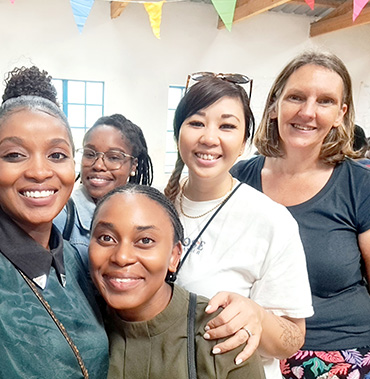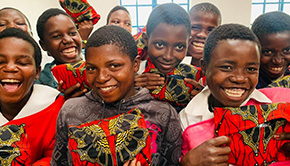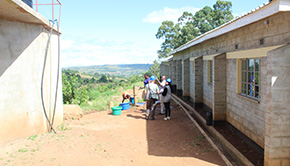Many Global Charities Refrain
In many parts of Malawi, particularly in rural villages, young girls face significant barriers to education. Poverty, early marriage, and cultural norms play a major role in this, but there’s another, often overlooked factor: period poverty.
At LOFOM Foundation, we believe that education is a fundamental right for all children, especially girls, who are often the most vulnerable in these communities. Without access to proper menstrual hygiene products, thousands of girls in Malawian villages miss school or drop out entirely. Imagine having to skip class every month because of something as natural as your period, or worse, having to leave school altogether because of the challenges and stigma associated with menstruation.
The Challenges Girls Face
Menstrual hygiene is a taboo topic in many places, leading to a lack of conversation and action to address the problem. Many girls in the villages we serve cannot afford sanitary products and resort to using old rags, leaves, or even plastic. These unsafe alternatives not only cause physical discomfort and health issues but also force girls to stay home out of fear of embarrassment.
In addition to this, the infrastructure in many schools does not support girls' needs. There are not enough toilets, and the existing ones often lack privacy or basic necessities like water and soap. Without access to clean, safe facilities, girls are left with no option but to miss school when they have their periods.
The result? Statistics show that 62% of adolescent girls in Malawi fail to complete primary school, and 96% never make it to the final classes of secondary school. Many of these girls, especially those from rural areas, end up married young or involved in child labor, locking them into a cycle of poverty that continues for generations.

“We believe in empowering and equipping local leaders. We help people who are helping people.”
LOFOM's Solution: Empowering Girls Through Education and Menstrual Care
We at LOFOM Foundation knew something had to change. We have worked tirelessly to help adolescent girls overcome the challenges they face by providing them with the resources and support they need to stay in school. This includes distributing reusable sanitary pads, building private changing rooms in schools, and offering menstrual health education.





